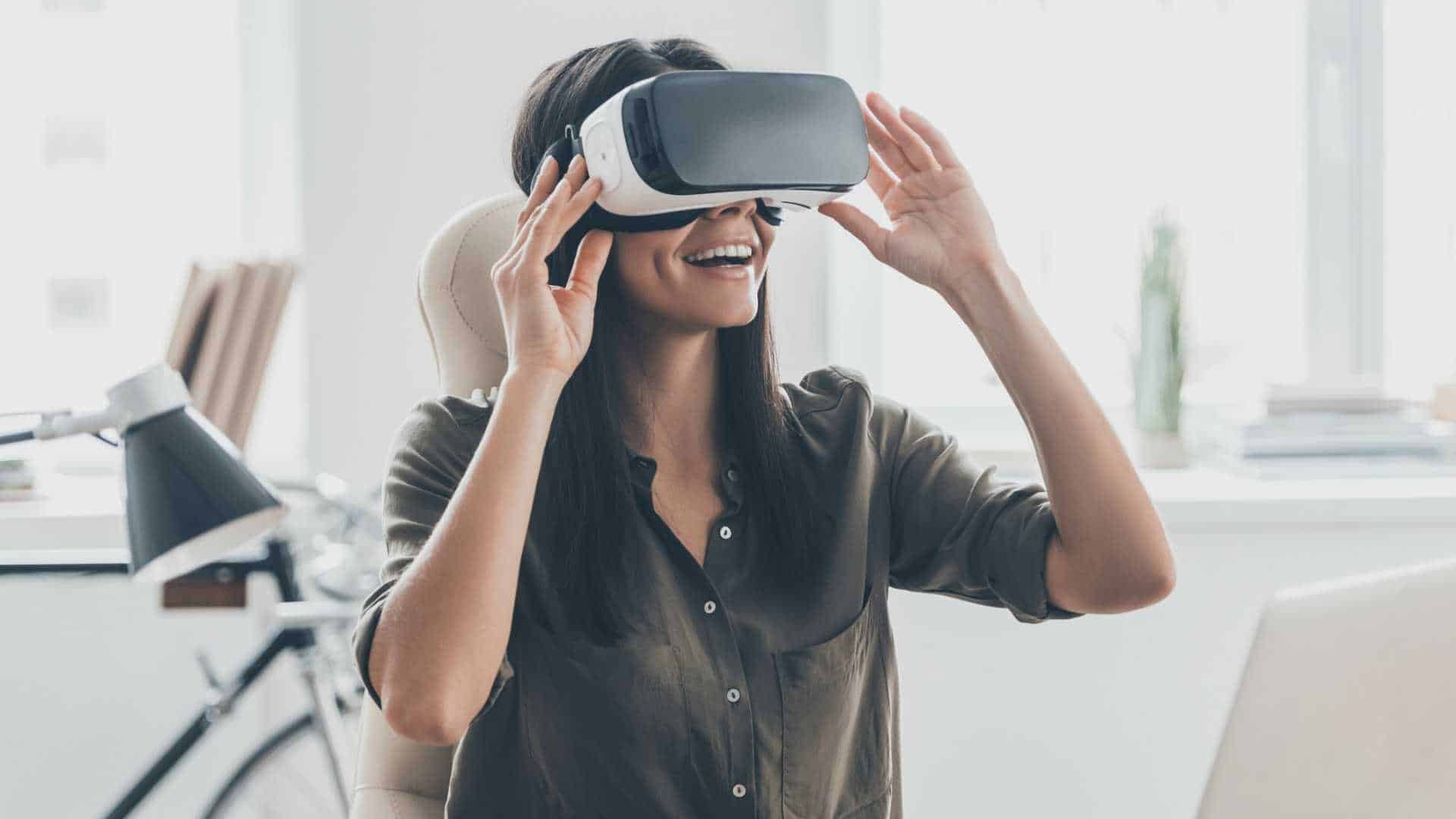VR training has many benefits over traditional training practices, such as time efficiency, cost-efficiency, low-risk practices, creativity and much more. But how do you know where to implement VR in your business? In what departments would VR bring the most benefits to your business? With a VR headset, your business can make use of VR training in many different areas such as safety, logistics, operations, maintenance, manufacturing, emergency and healthcare training – amongst many others.
Here’s a breakdown of these 7 VR Training Use Cases, so you can see for yourself if you can implement VR training in your business:
1. Safety VR Training
VR can be used in training people in things such as occupational health and safety, or enable training in hazardous environments. These conditions require the utmost attention and expensive protective gear in real-life scenarios. But in VR, this may not be necessary. As trainees can be immersed in virtual worlds, the precautions taken in real life are not needed anymore.
Therefore, no protective gear and no real-world precautions mean cost-effective training programmes. Furthermore, it also prevents accidents that are prone to occur in a non-virtual world.
Take firefighters for an example – fighting fires is an extremely dangerous job and in real life preparation can only go so far. Safety is the be-all and end-all and proper safety training is a must, which can be very expensive. With VR Safety training, you can recreate emergency situations, immerse the trainee’s in life-like fire scenarios and as such let them train effectively, yet safely.
Want to see what that can look like? Then watch this video of LUDUS, introducing their VR content for industry and emergency:
https://www.youtube.com/watch?v=qMpW_32GzKg
2. Logistics VR Training
Logistics training usually requires some physical work, proper planning and training facilities and experienced personnel allocation. VR provides safe environments since trainees will be training virtually. It also doesn’t require a full team of trainees to finish a set of training since VR can mimic a real-world scenario and training lessons can be replayed anytime. Additionally, VR is less costly as the investment for VR training is significantly less compared to traditional training models.
What can that look like? You don’t even have to imagine! DHL, the global shipping company trains its employees to build loading units safely and effectively – all with the help of logistics VR training. See for yourself, how DHL implements VR for their training purposes: https://youtu.be/hWOplXriKbM
3. Operations VR Training
In the operations use case, trainees can work around with different technical tools or try out new things. In the real world, it’s not always safe to try out different operations, and new ways of handling operations.
It is possible to initiate training on equipment well in advance of actual production – by merely practicing in virtual reality. For companies setting up new production sites abroad, this is particularly advantageous. Yet another benefit of training operators through virtual reality is the optimization of manufacturing capacity and the reduction of downtime costs. Staff is ready to work effectively on machinery prior to actually handling real machinery.
VR offers the environment to try out new things, as well as the space to make mistakes and learn from them without risking the health of anyone.
As you can see in use this case by Fusion VR, they exactly recreated machinery in VR – which offers the trainees the possibility to operate them before actually dealing with it in real life. Have a look here: https://www.youtube.com/watch?v=4TaZfLkgHPk.
4. Maintenance VR Training
Businesses usually have some regular routine checkups and maintenance. In order to have
good quality maintenance, the employees responsible for this task need to be well trained. Hands-on training is always required,, but may be very time-consuming in case you want to train multiple trainees at once.
In VR, trainees can be trained at the same time by being immersed in a VR scenario and be fully trained right within the virtual world. Even if you have a whole team that needs to go through the same training laps, they can be trained at the same time with different headsets.
Take the Airbus Maintenance VR Training as a perfect example for that: It’s an immersive 3D cockpit solution that allows the trainees to learn checklist procedures related to engines and its systems based on actual operational scenarios and real life in-service aircraft maintenance procedures. That plus the possibility to monitor progress in real time shows why VR training makes perfect sense for maintenance processes.
Check it out here:
https://www.youtube.com/watch?v=T4kFBP_aUDw.
5. Manufacturing VR Training
When training in the manufacturing department, you have to allocate some raw materials that are for training purposes. In such cases, the products manufactured usually end up being deformed or at least not the final product at the desired quality. Which means: production loss.
VR Training provides the ability to train employees into manufacturing but without this production loss. This is all possible due to the immersion of trainees in a virtual world where they can train in a realistic environment.
In this use case, you can see how VR is used to recreate the manufacturing process for a drone, including with visual instructions to speed along the progress. This can be applied to basically any product and manufacturing process.
See it in detail:
https://youtu.be/HiilwiHLU_A
6. Emergencies VR Training
Whether it’s battling blazes as a firefighter or keeping people safe as a police officer: Training for these cases isn’t easy, as it’s always difficult to set up an environment that is completely spontaneous, unexpected and still realistic.
VR helps you set up these unexpected and random outbursts of situations in virtual environments. Here trainees can be trained with the utmost efficiency as they can leave the training well prepared to handle emergency situations.
In this video created by BBC, you can get a comprehensive overview of different emergency situations and the way VR is used to prepare for them. From fighting fires, performing medical procedures to risky police operations – get an idea of what VR can do for emergency training here:
https://youtu.be/vOAOfn9bTDY
7. Healthcare VR Training
Healthcare has one of the most sensitive training environments when done in real life. One mistake and it could cost someone’s life. Of course, trainees go through different stages before getting their hands on a real patient, but stays an overall sensitive training.
VR gives trainees a risk-free environment for both themselves and the patients that they would have possibly been training on. Trainees can also be immediately tested on different conditions, without having to be lucky to do a procedure on a patient having a not-so-common medical condition.
This example by the Children’s Hospital Los Angeles illustrates exactly how VR training can be used in healthcare. Real life medical scenarios are recreated in 3D and let’s them practice in a safe, yet immersive environment to prepare trainees properly for high risk procedures in real life. See for yourself here:
https://www.youtube.com/watch?v=LGzzdlAP_S0
Conclusion
Businesses from all different kinds of industries can make use of VR Technology to do training on their staff effectively. To provide the best desirable outcomes for trainees, they need to be trained on an engaging platform that allows them to be completely immersed in the training scenarios -this is what helps them to be trained properly and to develop a strong set of skills. VR Training provides exactly that, at low cost and with high-efficiency training models.
Smart VR Lab develops and produces training content for businesses across multiple industries. To transform the way your business trains its staff, simply contact Smart VR Lab for a demo and set up a meeting with our team.
If you have questions on anything related to VR, you can always send us a mail to info@smartvrlab.nl
Request a VRee trial
For a free 4-week trial, demo or simply more information,please leave your email.

